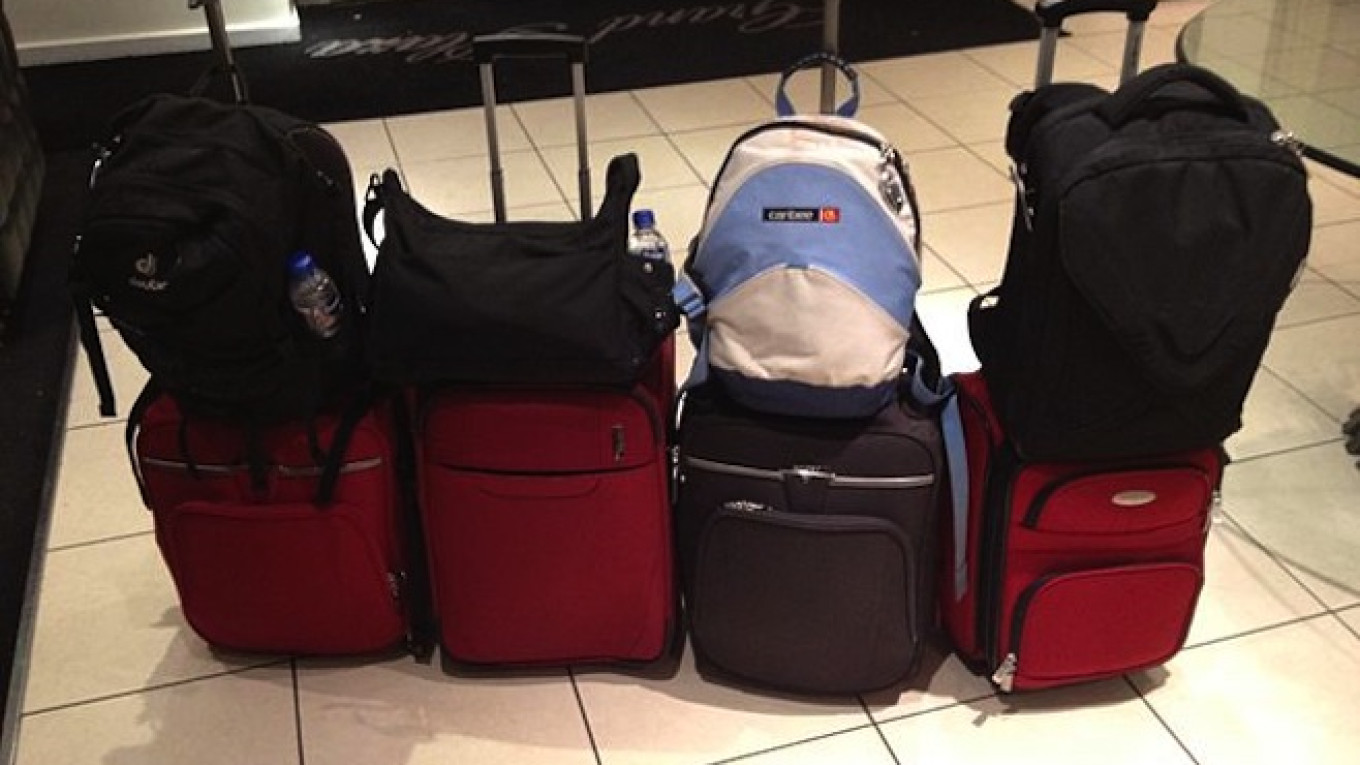Amid the food destruction frenzy that spread across Russia last week, officials appear to have widened their remit and started confiscating food items from travelers' hand luggage, despite the decree that banned commercial imports of some Western food products clearly stating that it does not apply to items brought in for personal consumption.
Denis K., a user of an online forum dedicated to customs issues, wrote on Aug. 3 that customs officers at Moscow's Sheremetyevo Airport had confiscated 10 packs of jamon, each weighing 600-700 grams, from his friends' hand luggage. The officers said they were simply following the new rules under which sanctioned food should be destroyed, he said.
“Is my understanding correct that their actions were illegal? Resolution No. 774 [under which banned food imports are to be destroyed] comes into force only on Aug. 6. Moreover, it states that people whose items have been seized have a right to be present during the destruction process and should sign a form,” Denis K. wrote, adding that his friends had not been given anything to sign.
A total of 552 kilograms of banned food products brought in packed in hand luggage has been destroyed in St. Petersburg and the Leningrad, Primorye, Sakhalin and Kaliningrad regions, Rosselkhoznadzor, the state agricultural watchdog, said in an online statement published Tuesday.
Experts expressed doubt Wednesday over the economic value of the crusade to destroy food items that fall under Russia's year-old ban on imports from countries that slapped sanctions on Russia over its role in the Ukraine crisis. And seizing items from hand luggage appears to directly contradict the initial food ban, which stipulated that individuals are allowed to bring in food from sanctioned countries for personal use.
Personal or Commercial?
Under Russian customs regulations, people can bring in up to 5 kilograms of animal products in their luggage without documentation specifying its origins and attributes, Dmitry Kotikov, a spokesman for the Federal Customs Service (FTS) told The Moscow Times in written comments.
He said there is no record of customs officers confiscating goods transported in luggage for personal use.
“The press service of the FTS has no information about customs officers seizing sanctioned goods that were transported by individuals for purposes of personal use,” Kotikov wrote Wednesday.
“But we have reported numerous cases of people transporting those goods for other purposes, including commercial ones, and pretending they were intended for personal use,” he said.
Regulations on bringing goods into the country existed before the ban on food imports and there is a list of products that regulates the quantity of them that can be brought into the country, said Vyacheslav Mikhailoshin, deputy director of the Legal Services Center law firm in Moscow.
“If it's sturgeon caviar, for example, then you can only have 250 grams of it with you for personal use. Any more, and it's considered not for personal use, and customs officers are allowed to confiscate and destroy it,” he told The Moscow Times in a phone interview.
There are several other factors that may also be taken into consideration, Mikhailoshin said. “If you've been coming over the border every week, even with less than [the allowed] 5 kilograms of cheese, they can consider it as being brought in for commercial purposes and confiscate it,” the lawyer said.
He added that confiscation can be challenged in court. Ultimately, he said, people should not worry, because Putin's decree from last year and this year's government resolution on destroying any illegal imports discovered haven't really changed the law on bringing in goods for personal use.
Economic Failure
From the point of view of economics, neither the food ban nor the subsequent food destruction decree make any sense, economist Sergei Yelin, head of the Audit i Pravo (Audit and Law) consulting company, told The Moscow Times in a phone interview Wednesday.
“Prices on food have grown by 20 percent on average, while the agricultural sector has only grown by 2.9 percent,” he said. “In order to jump start our own agricultural production, a whole complex of measures should be enacted,” such as reducing interest rates on loans and enabling smaller enterprises to take part in the state procurement system, the expert added.
The destruction of the food is a purely political gesture, Yelin said, intended to emphasize the seriousness of the food ban that is not effective because there are so many loopholes that still make the import of banned products possible.
“The economy only loses [from the food ban], and the actual goals of it weren't achieved, so now they are destroying food to prove their point,” the economist concluded.
Contact the author at [email protected]
A Message from The Moscow Times:
Dear readers,
We are facing unprecedented challenges. Russia's Prosecutor General's Office has designated The Moscow Times as an "undesirable" organization, criminalizing our work and putting our staff at risk of prosecution. This follows our earlier unjust labeling as a "foreign agent."
These actions are direct attempts to silence independent journalism in Russia. The authorities claim our work "discredits the decisions of the Russian leadership." We see things differently: we strive to provide accurate, unbiased reporting on Russia.
We, the journalists of The Moscow Times, refuse to be silenced. But to continue our work, we need your help.
Your support, no matter how small, makes a world of difference. If you can, please support us monthly starting from just $2. It's quick to set up, and every contribution makes a significant impact.
By supporting The Moscow Times, you're defending open, independent journalism in the face of repression. Thank you for standing with us.
Remind me later.


